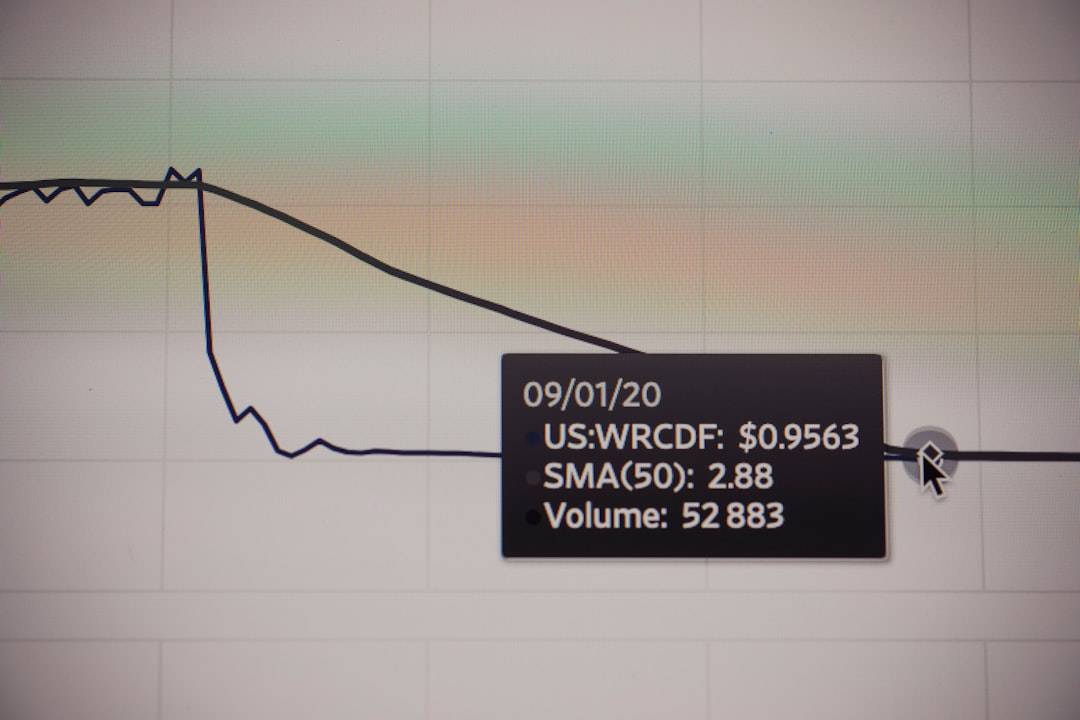Cloud server security is a critical concern in the modern digital landscape, as businesses increasingly rely on cloud services for data storage and management. Protecting a company’s cloud server is essential for safeguarding sensitive information, preventing unauthorized access, and maintaining data integrity and availability. Security breaches in cloud servers can lead to significant consequences, including financial losses, reputational damage, and legal issues.
Therefore, it is crucial for businesses to understand the importance of cloud server security and implement appropriate protective measures. The potential for data breaches is a primary reason why cloud server security is vital. As cyber threats become more sophisticated, hackers continually seek vulnerabilities in cloud servers to access sensitive information.
This necessitates the implementation of robust security measures to protect data from unauthorized access. Furthermore, compliance with data protection regulations such as GDPR and HIPAA requires businesses to ensure the security of their cloud servers. Non-compliance can result in substantial fines and legal consequences.
Understanding the importance of cloud server security is therefore essential for businesses to prioritize data protection and adhere to relevant regulations.
Key Takeaways
- Cloud server security is crucial for protecting sensitive data and preventing unauthorized access.
- Strong access control measures, such as multi-factor authentication, help prevent unauthorized users from accessing cloud servers.
- Encrypting data in transit and at rest adds an extra layer of security to protect data from being intercepted or accessed by unauthorized parties.
- Regular monitoring and auditing of cloud server activity can help detect and prevent security breaches or unauthorized access.
- Keeping software and applications updated with the latest security patches helps protect against known vulnerabilities and exploits.
Implementing Strong Access Control Measures
Multi-Factor Authentication
One way to achieve this is by implementing multi-factor authentication, which requires users to provide multiple forms of verification before gaining access to the cloud server. This adds an extra layer of security and makes it more difficult for unauthorized users to gain access.
The Principle of Least Privilege
Another important access control measure is the principle of least privilege, which involves granting users only the minimum level of access required to perform their job functions. This helps to limit the potential damage that can be caused by a compromised account and reduces the risk of insider threats.
Regular Review and Update of User Access Permissions
Additionally, businesses should regularly review and update user access permissions to ensure that they align with the principle of least privilege. By implementing strong access control measures, businesses can significantly enhance the security of their cloud server and reduce the risk of unauthorized access and data breaches.
Encrypting Data in Transit and at Rest

Encrypting data in transit and at rest is a fundamental aspect of cloud server security. Data encryption involves converting data into a code that can only be accessed with a decryption key, making it unreadable to unauthorized users. Encrypting data in transit ensures that data is secure as it travels between the user’s device and the cloud server, protecting it from interception by cybercriminals.
This is typically achieved through the use of secure communication protocols such as SSL/TLS, which encrypt data during transmission over the internet. In addition to encrypting data in transit, it is equally important to encrypt data at rest, meaning data that is stored within the cloud server. Encrypting data at rest ensures that even if unauthorized users gain access to the server, they will not be able to read or use the encrypted data without the decryption key.
This provides an additional layer of protection for sensitive information stored within the cloud server environment. By encrypting data in transit and at rest, businesses can significantly enhance the security of their cloud server and protect their data from unauthorized access and interception.
Regularly Monitoring and Auditing Cloud Server Activity
| Metrics | Value |
|---|---|
| Number of Cloud Servers | 10 |
| Frequency of Monitoring | Every 5 minutes |
| Number of Unauthorized Access Attempts | 5 |
| Number of Security Alerts | 3 |
Regularly monitoring and auditing cloud server activity is essential for detecting and responding to potential security threats. By monitoring user activity, businesses can identify any unusual or suspicious behavior that may indicate a security breach or unauthorized access. This can include monitoring login attempts, file access, and changes to user permissions.
By regularly auditing cloud server activity, businesses can ensure that users are adhering to security policies and identify any potential vulnerabilities or weaknesses in the server environment. Furthermore, monitoring and auditing cloud server activity can help businesses to comply with regulatory requirements by providing a record of user activity and changes made within the server environment. This can be crucial in demonstrating compliance with data protection regulations and providing evidence in the event of a security incident or audit.
By regularly monitoring and auditing cloud server activity, businesses can proactively identify and respond to potential security threats, maintain compliance with regulations, and ensure the integrity and security of their data.
Keeping Software and Applications Updated
Keeping software and applications updated is crucial for maintaining the security of a company’s cloud server. Software updates often include patches and fixes for known vulnerabilities, which can be exploited by cybercriminals to gain unauthorized access to the server environment. By regularly updating software and applications, businesses can ensure that their cloud server is protected against the latest security threats and vulnerabilities.
This helps to minimize the risk of security breaches and ensures that the server environment remains secure. In addition to updating software and applications, businesses should also regularly update their security configurations and settings to align with best practices and industry standards. This includes updating firewall rules, access control lists, and other security settings to ensure that they provide adequate protection against potential threats.
By keeping software and applications updated and maintaining secure configurations, businesses can significantly enhance the security of their cloud server and reduce the risk of unauthorized access and data breaches.
Educating Employees on Security Best Practices

Employees as the First Line of Defense
Employees are often the first line of defense against potential security threats, making it essential for them to be aware of best practices for protecting sensitive information and preventing unauthorized access. This includes training employees on how to recognize phishing attempts, create strong passwords, and securely access and share data within the cloud server environment.
Mitigating Insider Threats
Educating employees on security best practices can help to mitigate the risk of insider threats by promoting a culture of accountability and responsibility for protecting sensitive information. By providing regular training and awareness programs, businesses can empower employees to play an active role in maintaining the security of the cloud server environment.
Reducing Human Error and Ensuring Accountability
This can help to reduce the likelihood of human error leading to security breaches and ensure that employees are equipped with the knowledge and skills needed to protect sensitive information. By doing so, organizations can create a secure and reliable cloud server environment that protects sensitive data and maintains the trust of customers and stakeholders.
Having a Response Plan for Security Incidents
Having a response plan for security incidents is crucial for effectively managing and mitigating potential security breaches within a company’s cloud server environment. A response plan outlines the steps that should be taken in the event of a security incident, including how to detect, contain, eradicate, and recover from a breach. By having a well-defined response plan in place, businesses can minimize the impact of a security incident and ensure a swift and coordinated response.
Furthermore, having a response plan for security incidents can help businesses to comply with regulatory requirements by demonstrating that they have taken proactive measures to prepare for potential breaches. This can be crucial in maintaining trust with customers and stakeholders by showing that the business is committed to protecting sensitive information and responding effectively to security threats. By having a response plan for security incidents, businesses can demonstrate their commitment to maintaining the security of their cloud server environment and ensure that they are prepared to respond effectively in the event of a breach.
In conclusion, understanding the importance of cloud server security is essential for businesses to prioritize the protection of their data and comply with relevant regulations. Implementing strong access control measures, encrypting data in transit and at rest, regularly monitoring and auditing cloud server activity, keeping software and applications updated, educating employees on security best practices, and having a response plan for security incidents are all critical components of maintaining a secure cloud server environment. By taking proactive measures to safeguard their data, businesses can minimize the risk of unauthorized access, protect sensitive information, and ensure the integrity and availability of their data within the cloud server environment.
If you’re interested in learning more about cloud server security, you may also want to check out this article on online communities and how they are impacted by cybersecurity threats. Understanding the broader context of digital security can help you make informed decisions about protecting your cloud servers.
FAQs
What is cloud server security?
Cloud server security refers to the measures and practices put in place to protect the data, applications, and infrastructure of cloud servers from unauthorized access, data breaches, and other security threats.
Why is cloud server security important?
Cloud server security is important because it helps to safeguard sensitive information, prevent data breaches, and ensure the integrity and availability of cloud-based resources. It also helps to maintain compliance with industry regulations and standards.
What are some common threats to cloud server security?
Common threats to cloud server security include unauthorized access, data breaches, malware, DDoS attacks, insider threats, and misconfigured security settings.
What are some best practices for cloud server security?
Best practices for cloud server security include implementing strong access controls, encrypting data, regularly updating and patching systems, monitoring for security threats, and conducting regular security audits and assessments.
What are some tools and technologies used for cloud server security?
Tools and technologies used for cloud server security include firewalls, intrusion detection and prevention systems, encryption technologies, security information and event management (SIEM) systems, and identity and access management (IAM) solutions.
How can businesses ensure the security of their cloud servers?
Businesses can ensure the security of their cloud servers by implementing a comprehensive security strategy, training employees on security best practices, working with trusted cloud service providers, and staying informed about the latest security threats and solutions.











Leave a Reply